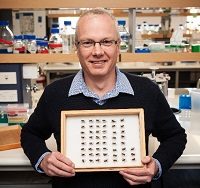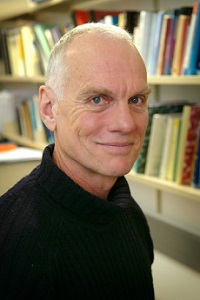Prestigious fellowships awarded to Victoria researchers
Two Victoria University of Wellington scientists have received highly sought-after James Cook Research Fellowships.
Victoria University of Wellington researchers are among a small group of leading New Zealand scientists to receive highly sought-after James Cook Research Fellowships.
 Professor Phil Lester, from Victoria’s School of Biological Sciences, has been awarded a fellowship to research ways of reducing the impact of parasites and pathogens that are a central cause of declining bee populations in North America, Europe and New Zealand.
Professor Phil Lester, from Victoria’s School of Biological Sciences, has been awarded a fellowship to research ways of reducing the impact of parasites and pathogens that are a central cause of declining bee populations in North America, Europe and New Zealand.
Along with a team of collaborators, including Professor Graham Le Gros from the Malaghan Institute of Medical Research, Professor Lester will attempt to infect honey bee eggs with a species of bacteria that provides resistance against viruses. “We know that some bacteria can do this. It’s just a matter of finding the right bacteria to obtain maximum protection against viruses.”
By using this approach, Professor Lester believes there is a good chance his team can drastically increase the global health of bees, prevent the effects of mites and decrease the use of pesticides for mite control.
 Professor Geoff Whittle, from Victoria’s School of Mathematics, Statistics and Operations Research, has also received a James Cook Fellowship which he will use to formally write the proof of a mathematical problem known as Rota’s Conjecture.
Professor Geoff Whittle, from Victoria’s School of Mathematics, Statistics and Operations Research, has also received a James Cook Fellowship which he will use to formally write the proof of a mathematical problem known as Rota’s Conjecture.
In 2013 Professor Geoff Whittle announced that he and collaborators in Canada and the Netherlands had solved the 40-year-old problem, which is in the area of matroids, a type of finite geometry.
Professor Whittle says he is extremely delighted to be awarded a Fellowship. “This will allow us to make significant progress toward converting what we know is fact, into useful research papers for the mathematics community—a process that will take several years' intensive work.”
The fellowships are administered by the Royal Society of New Zealand on behalf of the Government and are awarded to researchers who demonstrate that they have achieved national and international recognition in their area of scientific research.
